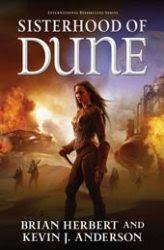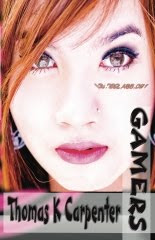

Earth Unaware: Tor hardcover, July 2012, 364 pages, cover art by John Harris. Earth Unaware is the first volume in the First Formic War, a prequel series to the classic novel Ender's Game. Earth Unaware reached the Final Four by defeating The Snow by Ross S. Simon in the first round and False Covenant by Ari Marmell in the second round.
The first 50 pages of Earth Unaware introduced us to three key characters: Victor Delgado, a young engineer mining comets with his clan beyond the orbit of Pluto, who learns of an object decelerating toward the solar system, which he believes to be an alien spacecraft; ambitious businessman Lem Jukes, who determines to steal the comet currently being mined by Victor's clan, in order to test a new "gravity laser"; and Mazer Rackham, a Maori soldier being tested for a very elite fighting force. In the next 50 pages, Victor's clan debates how to respond to the approaching object, Mazer's tests take an alarming turn to torture, and Jukes begins his attack.
After the Fall, Before the Fall, During the Fall: Tachyon trade paperback, April 2012, 183 pages, cover design by Elizabeth Story. After the Fall, Before the Fall, During the Fall won this year's Nebula and Locus Awards and was nominated for the Hugo. It reached the Final Four by defeating The Skybound Sea by Sam Sykes in the first round and Pazuzu's Girl by Rachel Coles in the second round.
The first 50 pages of After the Fall, Before the Fall, During the Fall introduced three parallel timelines: today, mathematician and single mother-to-be Julie Kahn analyzes the pattern behind a series of peculiar child abductions; in the near future, ominous new strains of bacteria are mutating; in the year 2035, the last few surviving humans cling to life in a strange habitat, using a time machine to obtain supplies and reinforcements from the past. In the next 50 pages, the bacteria in the near future become a threat to Earth's plant life, Julie goes into labor, and our viewpoint character in the far-future, Pete, begins to break from the strain of their enclosed lifestyle. He becomes violent and despondent with jealousy and foolishly attempts to run away.
The Battle: Generally, by the time we get to the semifinals, we're choosing between some darn good books. This battle is no exception. Through 100 pages, both these books are entertaining and engaging.
I might have expected Earth Unaware to begin with bass drums and cymbals as the seemingly belligerent "Formics" (come on, we all know they're the Buggers) arrive in our solar system. Instead, the novel starts earlier, introducing us to three interesting viewpoint characters, who have no idea yet that they've arrived at a crucial moment in history (although Victor suspects). All three storylines are well-constructed, with some nice interpersonal conflicts already established. I don't know how much of this is actually written by Orson Scott Card, but it all feels like his style——Aaron Johnston has taken well to Card's tutelage.
Similarly, After the Fall, Before the Fall, During the Fall is an apocalyptic tale, but Nancy Kress is much more concerned with the emotional strain on individual human beings than on explosions and special effects. The present-day and 2035 timelines are very nicely written, with solid characterization. The near-future timeline, which lacks any characters, feels a bit repetitive, but it does build an ominous mood as Julie's timeline begins to converge with it.
Through 100 pages, both these books have proven well worth the reader's time. Both feature interesting storylines and good characters. But there is only one character in either book who is compelling to me. In the year 2035, Pete is fighting hard to survive in a bizarre future, but his thoughts are consumed by feelings of love and jealousy and betrayal that any of us can relate to. He is in love with an older member of their band, but he doesn't get to have her because he is not fertile. His internal struggle leads him outside the survivors' enclosure.
While I'd be happy to continue with either of these semifinalists, Pete is the character I most care about, and so his story is the one I don't want to stop reading.
THE WINNER: After the Fall, Before the Fall, During the Fall by Nancy Kress
After the Fall, Before the Fall, During the Fall advances to the championship round, where it will face either Caliban's War by James S. A. Corey or Be My Enemy by Ian McDonald.
To see the whole bracket, click here.













